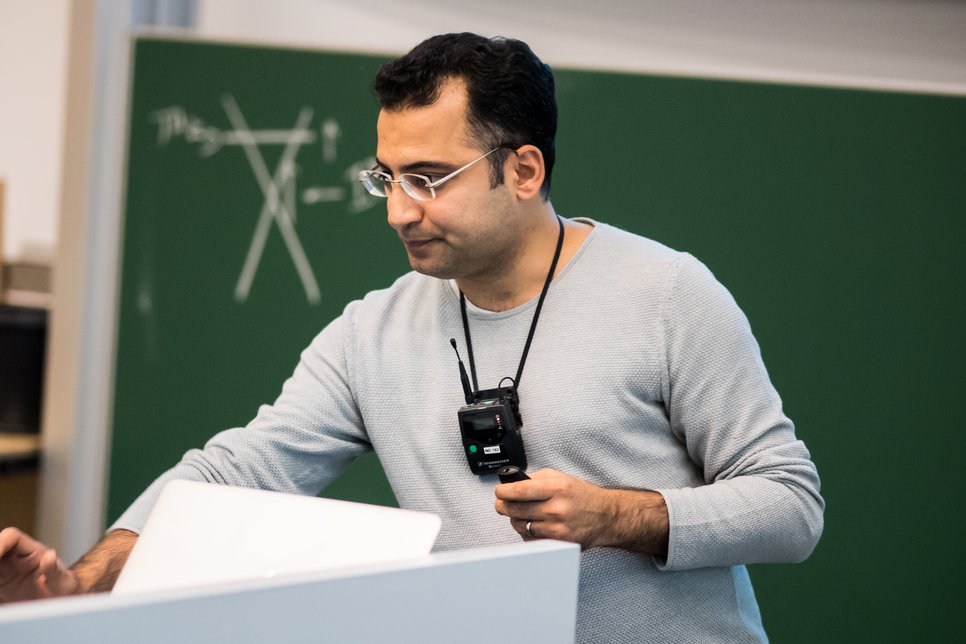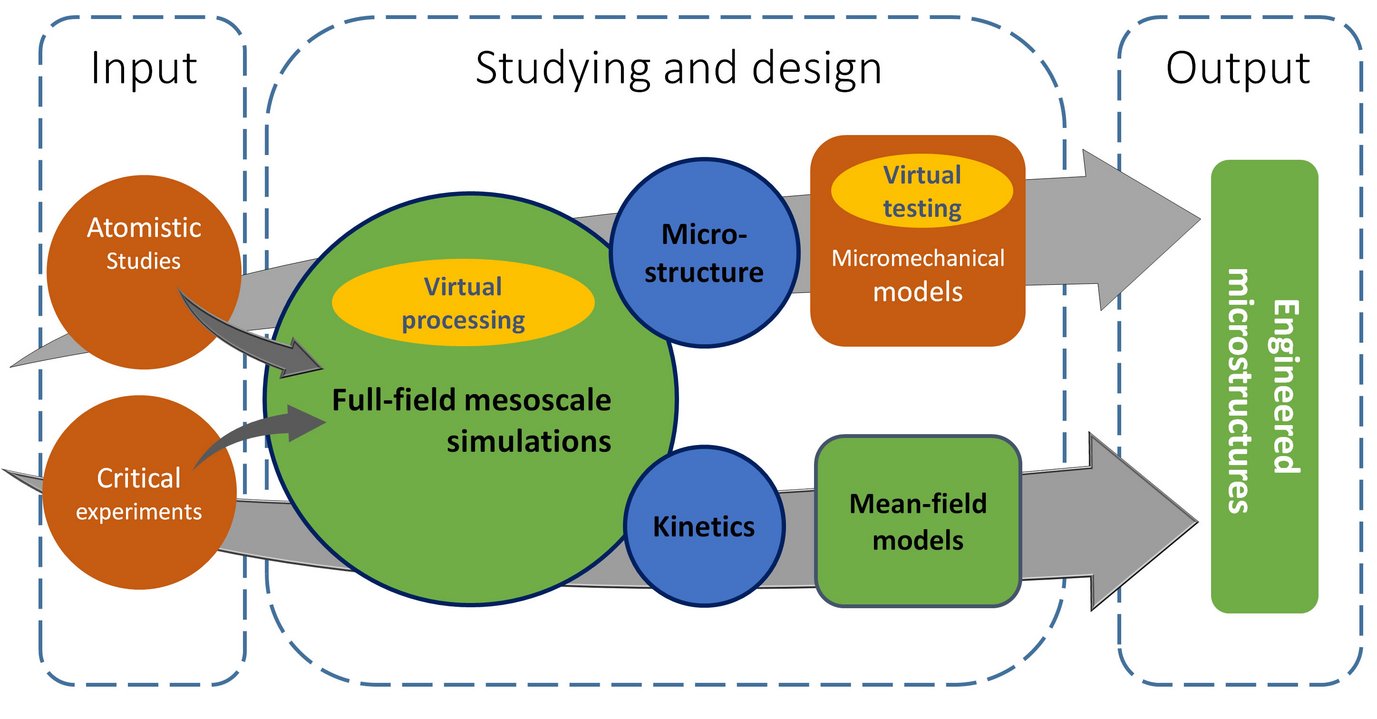Max Planck material scientist wins Heisenberg Fellowship
German Research Foundation awards Reza Darvishi Kamachali

Doctor Reza Darvishi Kamachali won the Heisenberg Fellowship of the German Research Foundation and will investigate advanced engineering materials by combining mesoscale full-field simulations with mean-field modelling.
Doctor Reza Darvishi Kamachali, postdoctoral researcher at the Max-Planck-Institut für Eisenforschung (MPIE), was awarded the Heisenberg Fellowship by the German Research Foundation to pursue his research on materials microstructures. By combining mesoscale full-field simulations with mean-field modelling, Darvishi Kamachali aims at designing advanced engineering materials microstructures and their optimal processes. While mesoscale full-field simulations enable analysing virtual microstructure evolution in full details, mean-field modelling allows the discovering of applied interrelationships between bulk material properties and the material’s microstructure. In close collaboration with the MPIE departments of Computational Materials Design and Microstructure Physics and Alloy Design, Darvishi Kamachali focusses on scale-bridging studies across atomistic simulations and precise experimentation and characterization of complex material systems of steel, aluminium and high entropy alloys.
In comparison to other theoretical approaches, the Heisenberg fellow will couple the materials’ chemistry, mechanics and thermodynamics in a kinetics framework to gain an insight on the overtime evolution. The understanding of coupled thermo-chemo-mechanical phenomena can lead to novel design routes of future materials. Indeed, in a recent investigation Darvishi Kamachali has revealed potential application of applying such coupling for stabilizing precipitates in aluminium alloys that will be further studied within this fellowship. Darvishi Kamachali is also one of the authors of the microstructure evolution software “OpenPhase” and is currently working together with the MPIE group “Theory and Simulation” to merge OpenPhase with the MPIE’s Düsseldorf Advanced Materials Simulation Kit (DAMASK) which models crystal plasticity.

In a next step Darvishi Kamachali plans to apply for further founding within the Heisenberg Programme to establish an independent research group at the MPIE. Before joining the MPIE in September 2017, Darvishi Kamachali worked for three years at the Interdisciplinary Centre for Advanced Material Simulation at the Ruhr University Bochum (RUB) leading the research group of Solid-Solid Interface Kinetics. Since 2014, he is also principle investigator in the Priority Programme 1713 about the coupling of thermo-chemical and thermo-mechanical states in applied materials. Moreover, he is a lecturer in the master programme Materials Science Simulation at the RUB since 2015. Darvishi Kamachali finished his PhD in 2013 exploring “Grain boundary motion in polycrystalline materials”. He was awarded with the Novice Award 2014 by the RUB, with the thyssenkrupp Innovation Award in 2012 and the Young Researcher Prize 2008 by the Materials and Energy Research Centre in Karaj, Iran.
The Heisenberg Programme is dedicated to promote young, highly-qualified researchers heading for professorship. It is one of the most renowned funding schemes of the German Research Foundation. It is named after Werner Heisenberg who was appointed professor with only 26 years and was awarded the Nobel Prize in physics with 32 years. The fellowship is supporting the awarded scientist for three years and can be extended to another two years.
Computational Materials Science, 130, 292-296, (2017)
Author: Yasmin Ahmed Salem

